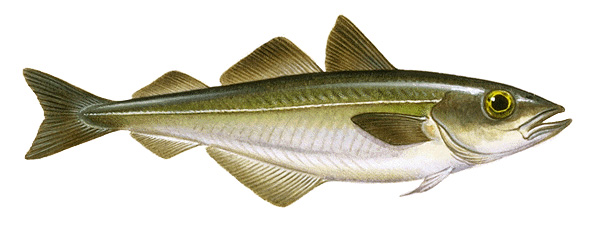Pollock, << POL uhk, >> also spelled pollack, is an important food fish that belongs to the family of fish called codfish (see Cod). Pollocks account for a significant portion of the world’s annual fish catch. There are three species of pollock. The walleye pollock, also called Alaska pollock, is the most important commercial species. It lives in the northern Pacific Ocean. The other two species of pollock are found in the northern Atlantic Ocean.

Pollock differ from other codfish because their lower jaw extends beyond the upper jaw. The Atlantic species grow to 31/2 feet (1 meter) long and can weigh up to 66 pounds (30 kilograms). The walleye pollock is smaller, weighing up to 11 pounds (5 kilograms). Pollock live mainly near the bottom of the ocean. They feed chiefly on small fish and they also eat other small aquatic animals.
The walleye pollock is sold fresh or frozen. It is also filleted (deboned) and made into fish sticks. In addition, it is used to prepare a fish mixture called surimi, which is used in making fish cakes and artificial crab meat.
